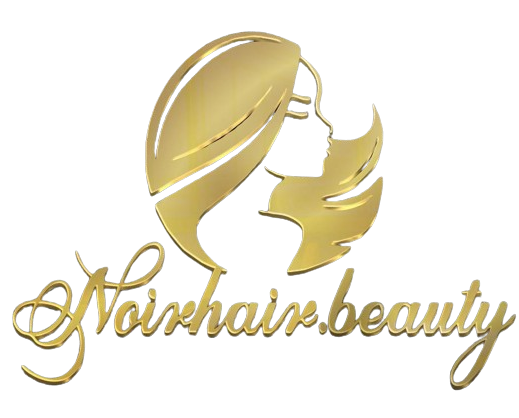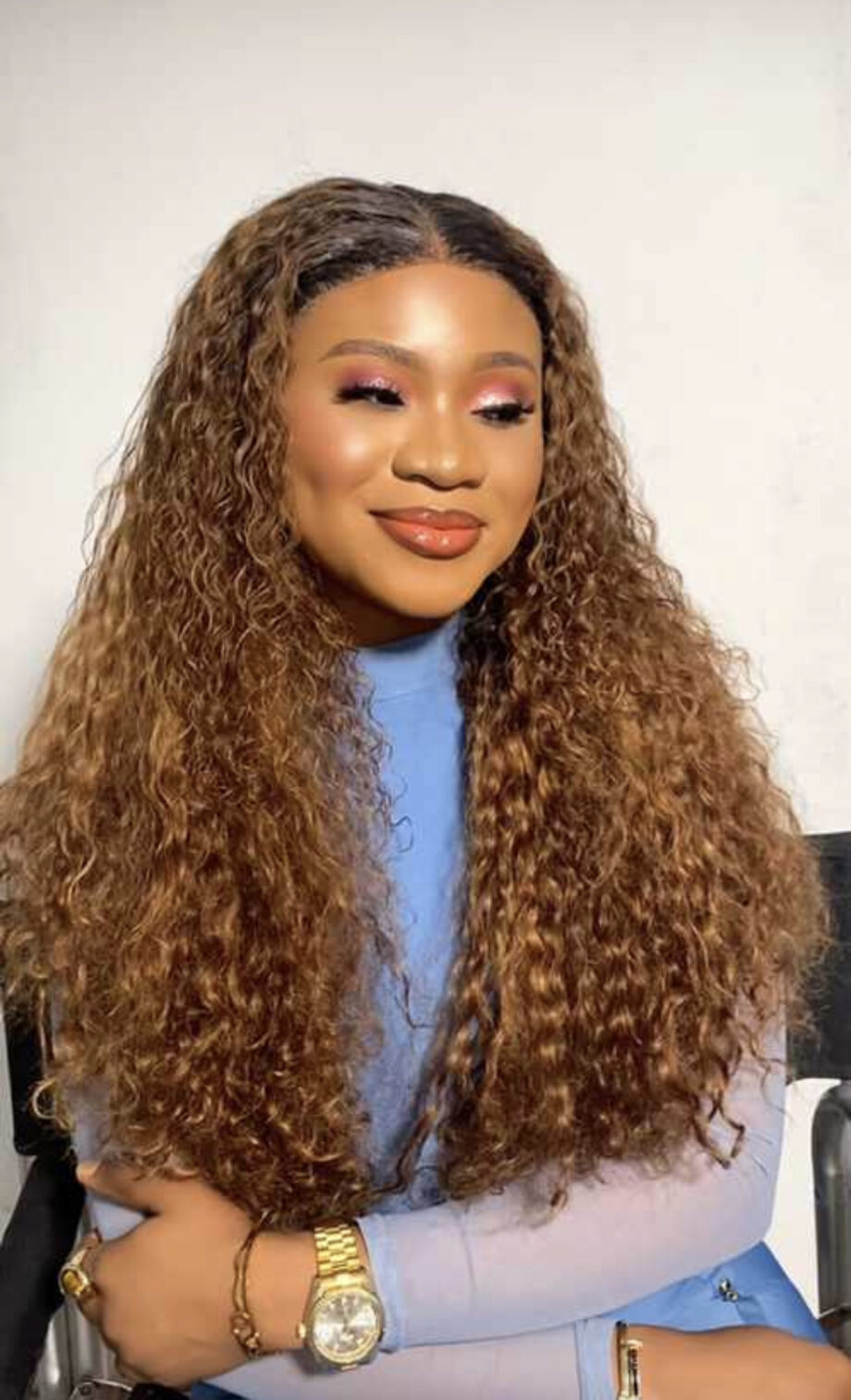When you first begin to research your natural tresses, the first thing you’ll realize is that there are a variety of curl types, and it can be tough to figure out which type you have. But with a bit of information and guidance, you’ll be able to identify your curly hair type in no time! In this article, we’ll introduce you to the curly hair type system, which is a foolproof way to determine your specific curl pattern. By the end, you’ll know exactly which type of curly hair you have and what to expect.

Simple Breakdown
- The hair type system, created by Andre Walker, assigns a number for every hair type ranging from 1-4. The higher the number, the curlier the hair and the tighter the coil.
- The curl type system focuses on three hair types – wavy, curly, and coily.
- Type 2s are wavy, Type 3s are curly, and Type 4s are coily.
- The sub-classifications of A to C are based on the width or diameter of your wave, curl, or coil
Type 2: Wavy Hair

Type 2 hair is wavy hair. This type of curly hair has a smaller diameter than type 3 curly hair and type 4 coily hair, and the curls are not as tight. Type 2 hair is often described as being “S” shaped. Key features of this type of curly hair include little volume at the roots, a natural shine, and the tendency to frizz out. Because waves are nowhere near tight, type 2 hair is often more manageable than other types of curly hair. However, it is still essential to follow a healthy hair care regimen to define and hydrate your waves!
2A Hair
2A hair is the loosest of all type 2 hair. It has a slight S-shape that disappears when the hair is wet. This hair type is often flat near the roots, but the texture comes through at the mid-lengths and ends. Caring for this hair type can be easy since 2A waves rarely get tangled and are easy to style with little to no product. The hair type also dries relatively quickly since it tends to be fine in texture. But it doesn’t come without difficulty – 2A hair is prone to frizzing, especially in humidity.
2B hair
2B hair has tighter waves than 2A hair, and the difference is noticeable at first glance. This hair type has a defined S shape with moderate texture. 2B strands have a bit more volume at the roots than 2A hair due to their more prominent texture. And for this exact reason, 2B hair is also more prone to frizz and can be challenging to manage at times. People with 2B hair often complain about greasy roots.
2C hair
2C hair is the most textured of all wavy hair. It has an S shape that’s so tight it almost looks like a curl. But you won’t be able to wrap 2C hair around your fingers since it’s not an actual curl. Of course, 2C hair has more texture than type 1 hair and less texture than type 3 hair. People love 2C hair for its volume at the roots and down the length of the hair. Still, the hair type can be a pain to style due to its tendency to tangle.
Wavy Units Transform Your Hair Game
Whether you have type 2 hair or not, a wavy wig is an item every girl needs in her hair stash. Not only will you be able to rock your type 2 hair on days when you don’t feel like dealing with your natural texture, but you’ll also have the option to style your wig in a variety of ways. Wavy wigs come in a range of styles, from beachy waves to big and bouncy (almost) curls. And the best part is that they’re super easy to style – just add a little styler, finger comb, and go!
Type 3: Curly Hair

Type 3 hair is composed of clearly curly hair, which may be large, loose S-shaped curls or tiny, tight ringlets and coils. Curly hair is not as textured as type 4 hair, but it can still be extremely curly. In general, type 3 hair is prone to frizz and tangles, which can make caring for and styling the hair an uphill battle. It also needs a lot of moisture since the scalp’s oils can’t travel down the strands and lubricate them properly. But when you get your hair care regimen right, you’ll enjoy some of the most beautiful, voluminous curls around.
3A Hair
3A hair is composed of defined ringlets, but they are nowhere near tight, especially when compared to type 3B and 3C curls. The curls are about the shape of a highlighter in most cases, but some 3A hair can be wrapped around even larger objects. Some people with 3A hair have some S-shaped curls as well. The main issue people run into with type 3A hair is frizz and dryness, but it can easily be remedied with moisturizing products and a gentle hair care routine. Some of the best aspects of 3A hair are its carefree aesthetic and fun volume.
3B hair
3B hair is the middle ground between type 3A and 3C hair. It’s more defined than 3A but not nearly as curly as 3C. These curls look like small ringlets (about the size of a Sharpie) and have a lot of bounce and volume. There may be a loose curl or a super tight coil here and there. Type 3B hair is naturally drier and frizzier than 3A hair, and these are the biggest problems that people with this hair type have. For this reason, 3B hair care regimens focus on smoothing and hydrating the hair.
3C hair
3C hair is the coiliest, springiest, and curliest of all type 3 curls. The curls look like extremely defined spirals that are just large enough to be wrapped around a #2 pencil, though some 3C coils are small enough to hug a straw. Oftentimes, 3C hair is very dense and voluminous. This is the hair type that gives you that coveted curly fro. At the same time, type 3C hair is known to be relatively fragile since its often lacking in hydration. But these curls are well-loved for their ever-springy nature and lustrous shine.
Curly Wigs are Always In!
If you haven’t jumped on the curly wig bandwagon, you’re missing out. Caring for type 3 hair can be tedious and downright frustrating – why not make things easier with a wig? It would enable you to give your natural hair a break so you can rock your favorite curly hairstyles without a care in the world. Quality curly wigs may be a little harder to find than other wig types, but they definitely exist – you just have to know where to look.
Type 4: Coily/Kinky Hair

Type 4 hair is curly, coily, and sometimes kinky. It is the curliest of all hair types and has the most volume you’ve ever seen. Type 4 hair often has a mind of its own, and taming it can seem near impossible. To compound the issue, the tighter the coil, the more fragile your hair tends to be, and that means that it breaks easily and doesn’t always grow as long as you’d like it to. Type 4 hair care regimens focus intently on injecting the hair with moisture and protein to keep it strong. But all of the work is worth it because when you get your type 4 hair to a healthy, thriving state, the results are absolutely stunning.
4A Hair
4A hair is the loosest of all type 4 hair. It’s made up of tiny kinks and coils that are clearly defined. Most of the time, 4A curls are no larger in diameter than a crochet needle. The texture may include S curls, coils, and kinks – there is a lot of variation within this curl type. 4A hair is also the most resilient curly hair type of all type 4s since its texture is loosest. In addition, 4A hair comes with a healthy dose of dryness (which can lead to breakage) and shrinkage, where the hair appears shorter than it actually is. This hair type lends itself well to big, bold styles like picked-out fros and wash n’ gos.
4B hair
4B hair is the midpoint of type 4 hair. It’s got a Z-shape rather than an S-shape – these Zs are more like kinks than curls. As a result, 4B hair doesn’t always have a defined curl pattern like all of the previous hair types we’ve mentioned. It also has the tendency to be coarse and unruly, which many have come to love in recent years. At the same time, 4B strands are highly fragile, easily breaking with excessive tension. Shrinkage is moderate with this hair type – around 50% – 75%.
4C hair
4C hair is the most highly textured curly hair of all. It’s made up of Zs galore and doesn’t have a discernable curl pattern in most cases. It can be wiry and coarse or softer than cotton candy. The most exciting thing about 4C hair, besides its unique appearance, is its level of shrinkage. It can shrink to a surprising 10% of its length. That means that 4C hair can look like it’s only ear-length but really be bra-strap length. Caring for 4C hair is arguably harder than caring for any other hair type due to its extreme dryness and fragility. But don’t let that scare you – with the right products and techniques, you can achieve healthy 4C hair that looks and feels fantastic.
Coily/Kinky Wigs for An All-Day Slay
4C hair is often a headache to manage and style. If you’re finding that your usual routine isn’t giving you the results you want, it may be time to switch things up with a wig. Wigs offer a low-maintenance way to achieve any style you desire, and they’re perfect for busy ladies on the go. If you’ve got 4C hair, we recommend trying a curly wig made with human hair. This will give you the most natural look and feel, and it will be much easier to manage than your own 4C hair. Trust us; your future self will thank you!
So, there you have it – everything you need to know about curly hair types! Now that you know your curl type, you can begin to tailor your hair care routine to better suit your needs. And if you’re ever feeling overwhelmed, remember that you can always throw on a wig and call it a day. Wigs offer the perfect solution for busy ladies with curly hair. Until next time, happy styling!
ShareShare on Facebook TweetTweet on Twitter Pin itPin on Pinterest

